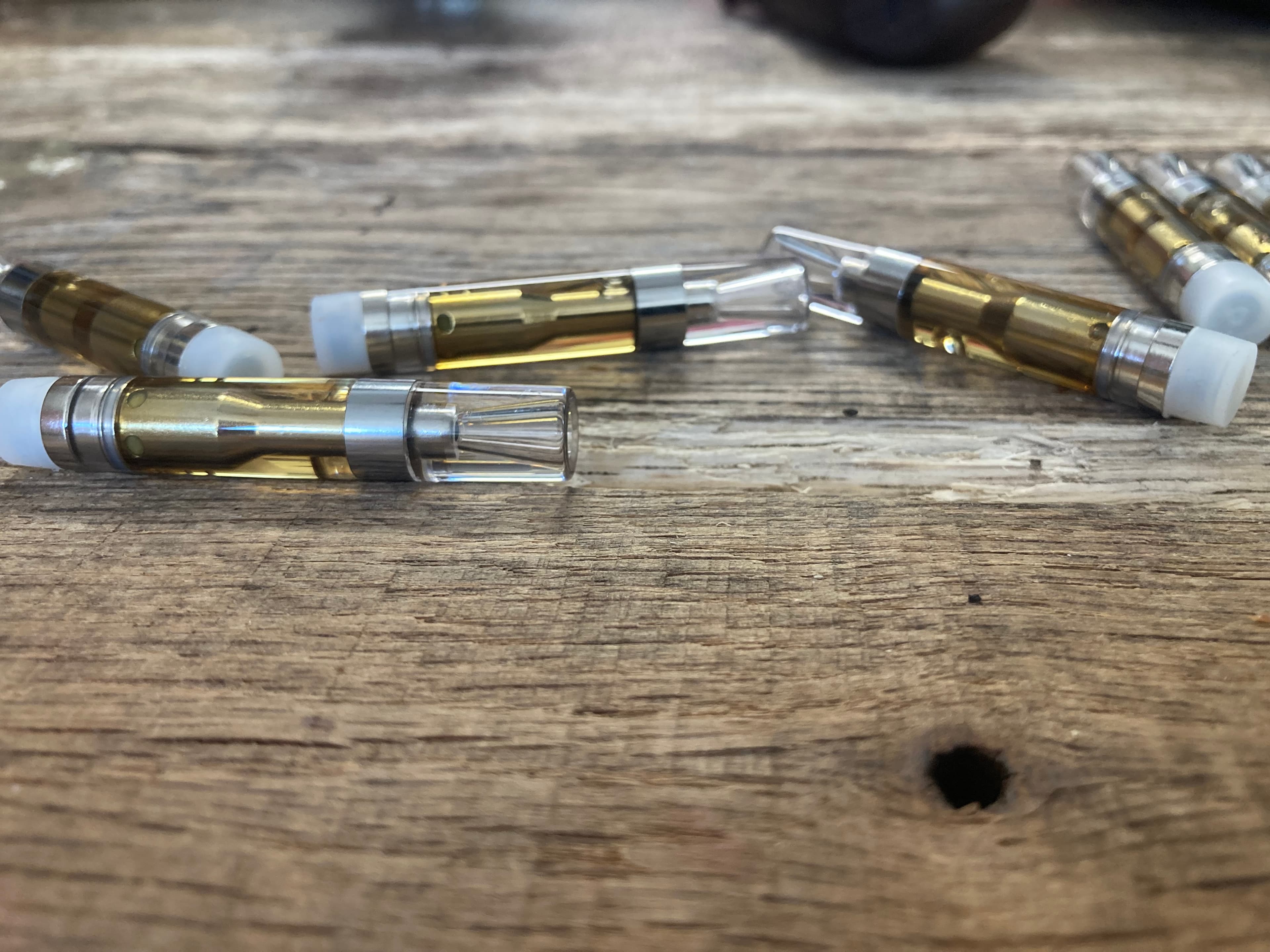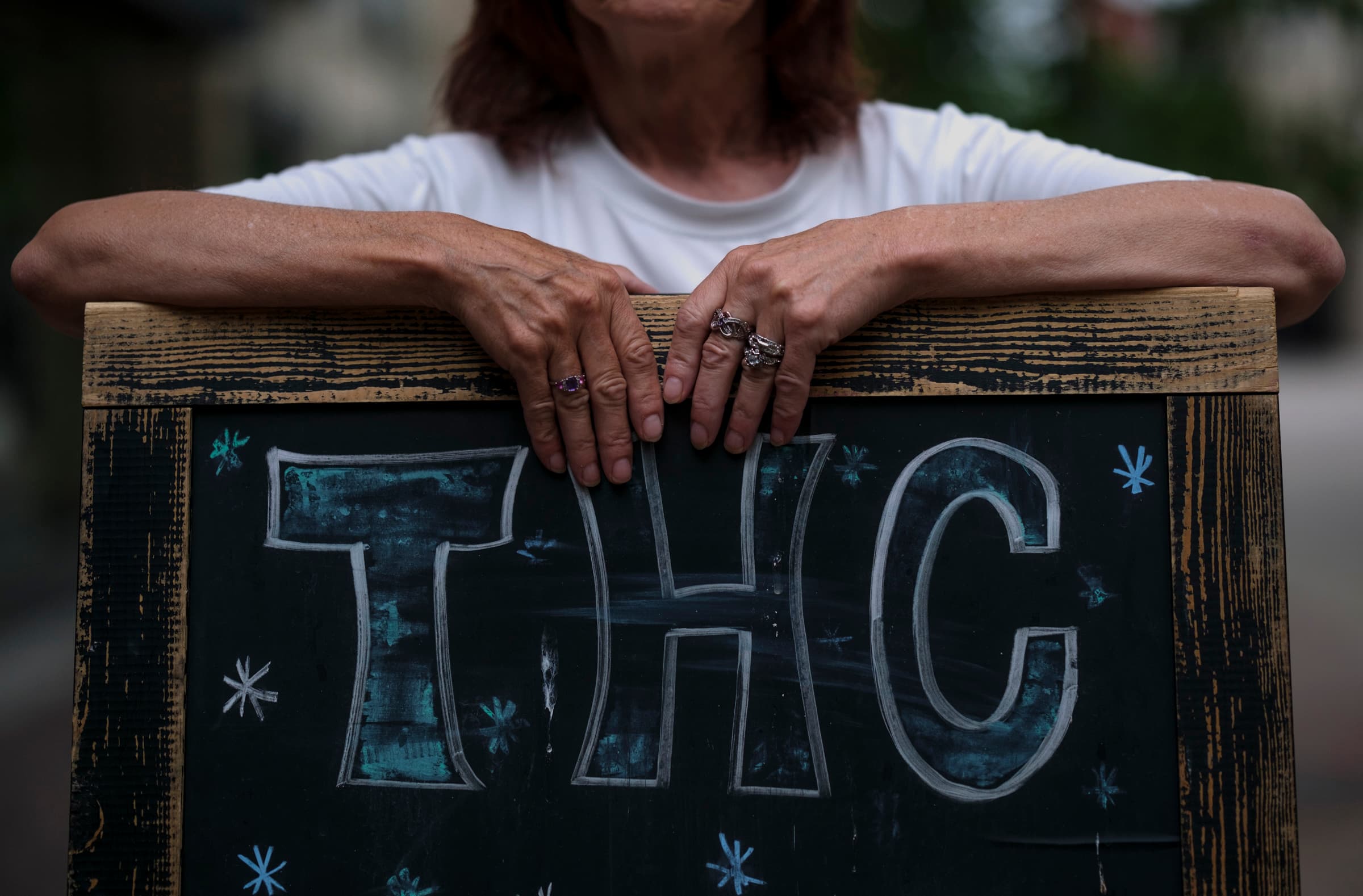This story is published as part of Highly Legal, a media partnership with AL.com, Milwaukee Journal Sentinel, PennLive and USA TODAY. Our team is continuing to report on new cannabis products and we want to hear from you. Share your experience or questions with us here.
In Alabama, a woman was not allowed to be left alone with her newborn. In North Carolina, a man’s employment offer was rescinded. In Wisconsin, a woman was fired from her job. All had tested positive for THC, the main psychoactive ingredient in marijuana.
Failed drug tests have long cost people jobs, and worse. But each of these people say that they were within their rights. It wasn’t weed they had used: it was hemp products, purchased legally at a gas station or store, to manage pain, relieve anxiety, aid sleep — or for a host of other perceived benefits.
Even though hemp was legalized by the federal government six years ago, The Examination, AL.com, and the Milwaukee Journal Sentinel have found that hemp products like vapes and gummies that contain compounds like CBD and delta-8 can still trigger standard drug tests.
First, they are legally able to have up to 0.3% of what has long been singled out as the psychoactive compound in marijuana: delta-9 THC, and through processing that percentage is often even higher. Second, the chemical structure of delta-8 mimics delta-9 THC, and can trigger a positive result.
“The only difference is the position of the double bond in the molecule,” said Lukasz Ciesla, an assistant professor of biology at the University of Alabama.
As the market and access to these products grow, so do prospective consequences for people who are none the wiser in states where marijuana remains illegal.
Reporters spoke to people like Sarah in Tuscaloosa, Alabama, under the condition of anonymity for fear of further repercussions, about what’s at stake.
Sarah, which is not her real name, had just given birth to her second child in July 2023 when she learned the hospital had administered a drug test, and it came back positive for THC.
“I said ‘OK, I did hit a delta-8 pen, but that was it,’” Sarah said in an interview with Al.com. “They said, ‘We do have to test the baby, it’s hospital policy. Because you tested positive, we have to test the baby as well.’”
Because of testing limitations, the reporting team was also unable to confirm what Sarah and other people in this story consumed. But Alabama, where marijuana remains illegal, joins Oklahoma, South Carolina and Mississippi, as among the most punitive states regarding drug use during pregnancy; mothers can face criminal charges for endangering a fetus if they are found to have used drugs.
Sarah’s baby tested positive, too. So did her husband.
Social workers asked them to give temporary custody to the husband’s parents, more than two hours away, near Huntsville. Child welfare agencies refer to these arrangements as "safety plans." Parents must voluntarily agree to the plan, and often do to avoid court orders that would send kids to foster care instead.
“We love nothing more than our role as parents. It was completely ridiculous that we were being run through the gauntlet for a legal product,” Sarah said in retrospect.

The confusion can be traced back to the Agriculture Improvement Act, also known as the farm bill, which legalized hemp at the federal level in 2018. Since then, manufacturers have saturated the market with all kinds of new products, some that can even deliver the same or a similar high as marijuana. Hemp products are especially popular in states where marijuana remains illegal, though some states have just banned them all together.
In April, The Examination and media partners in the Highly Legal investigative series found a severe lack of consumer-facing information about these products. People rely on vague wording on packaging and advice from smoke shop or gas station employees, online message boards for guidance, while states have seen increased calls to poison centers. Federal lawmakers are scrambling to rein in the sale of delta-8 and other intoxicating hemp products because there is a near-total lack of oversight.
Earlier this year, 13News, an Indiana news organization, tested seven delta-8 products from area smoke shops and gas stations, and found that five of the seven samples contained delta-9 THC that exceeded the state’s legal limit.
Anyone who uses a legal hemp product, regardless of what it says on the label, might fail tests made to detect marijuana. The industry has even innovated to create “hemp-derived delta-9” products, which are now widely available for sale — some contain even more THC than would be allowed under state laws.
The smell test
It’s not just the chemical makeup; hemp products can also look and smell the same as marijuana, and provoke run-ins with the judicial system.
Major Mark Melson of the Texas Department of Public Safety’s criminal investigation division told the Texas Senate State Affairs Committee hearing earlier this year that it’s difficult for state troopers to enforce drug laws.
“Drug-sniffing canines are unable to make the distinction between hemp and marijuana, and from an officer’s perspective, it’s not possible to make a distinction between legal and illegal based on sight and smell,” Melson testified.
North Carolina’s state’s bureau of investigations was among many to immediately recognize that it could not distinguish marijuana from hemp when hemp became legal.
In a 2019 memo, the agency noted that this would challenge the authority of prosecutors as well as law enforcement officers who pull people over, search and seize or make arrests without a warrant under the suspicion that a person has or is using marijuana. If the defendant says that they have legal hemp products, not marijuana, “...from small amounts to trafficking amounts of plant material,” the judicial system cannot prove otherwise.
“The inability for law enforcement to distinguish the difference between hemp and marijuana is problematic in all marijuana prosecutions,” the statement read.
Between the lack of oversight and rampant market growth, some hemp products have even been characterized by the U.S. Food and Drug Administration as “a big human guinea pig experiment,” because they lack information about how they are made, how potent they are, and for the emerging cannabinoids there is little research about their long-term effects.
By 2022, North Carolina legalized hemp and CBD-related products in alignment with the federal government. But conflicts around legal consumption and lack of sufficient testing remain.
Scott, which is not his real name, moved to North Carolina from California to be with his girlfriend last year. In February, he was offered a position as a manufacturing associate at a biopharma company, a proposal that was reviewed by The Examination. All that remained was a standard pre-employment drug test, which came back positive for THC. A few days before his start date, he got an email from human resources. “Due to you testing positive for marijuana on your pre-employment drug test, we are rescinding our offer of employment,” the representative wrote in an email seen by The Examination.
“The only thing I was consuming was federally legal hemp,” Scott told The Examination, “and the [HR] person immediately was like, ‘So, marijuana?’ And I said ‘No, federally legal hemp, delta-8 and CBD products’.”
Scott said he had been using these products to mitigate post traumatic stress disorder, specifically the depression and anxiety that can lead up to flashbacks and panic attacks. After his offer was rescinded, “I had to resort to taking out loans, I maxed out my credit card, I almost ended up homeless,” he said.
As with Sarah, The Examination could not confirm that Scott consumed hemp-made products, as he claims.
Alternative to pharmaceuticals
While Scott said he used hemp to soothe mental symptoms, Sarah said she started using delta-8 after she broke her leg in a golf cart accident, and then found out she was pregnant with her first baby at the hospital. Doctors prescribed opioids for pain, she told AL.com, then an anti-nausea drug Zofran for morning sickness.
She said delta-8 treated both symptoms with fewer concerns about side effects. Her husband said he began using delta-8 for chronic pain after serving in the U.S. Army.
The two of them say that they did everything they could to comply with government social workers after their children were sent to live with their grandparents, and were often paying out of pocket for drug tests and drug assessments. They had hoped that as long as they were accommodating, and that they could show they were not using marijuana, social workers would close their case. But that did not happen, and weeks turned into months.
In Wisconsin, Madeline, which is not her real name, filed an employment discrimination complaint with the state’s Department of Workforce Development after she was fired for failing an on-the-job drug test. She tested positive for marijuana even though she said she only used federally legal hemp products, her attorney Aaron Halstead said. Madeline’s attorney is speaking on her behalf to avoid potentially jeopardizing her ongoing case.

She was injured on the job, at a food manufacturing company in central Wisconsin, after equipment fell on her head. Her attorney says she treated the pain using gummies made with cannabinol, which is another cannabinoid found in cannabis, advertised as a legal aid for sleep and pain management. After she went to the emergency room, her employer asked her to take a drug test, which came up positive for marijuana, her attorney said.
“So our claim is that she was terminated for the use of a lawful substance, which is illegal under Wisconsin statute,” Halstead said. “The conduct of the employer is illegal.”
The employer has denied wrongdoing.
Honesty and flawed policies
Without better guidance, police and courts are likely to disproportionately charge Black hemp users under marijuana statutes, legal experts say.
“Leaving that deference to law enforcement results in a lot of racial disparities around who is given the benefit of the doubt with hemp and who's not,” said Jaelyn Miller, an attorney and community organizer with Emancipate NC, a Durham-based nonprofit.
Historically, people of color are more likely to face prosecution for marijuana possession. In 2020, the North Carolina Task Force for Racial Equity in Criminal Justice noted that 63 percent of the more than 10,000 convictions for possession of marijuana in North Carolina were people of color even though they made up only 30 percent of the population.
When it comes to the issue of employment, Rod Kight, a North Carolina-based attorney who represents hemp businesses throughout the U.S. says that the state prohibits employers from discriminating against a person for using any legal products, especially during non-working hours.
Coupled with the inability of standard tests to establish what is legal and what isn’t, “... it can sometimes be difficult for an employee to assert [their] rights under this statute, especially when the discrimination involves a failure to hire,” wrote Kight via email.
Phil Dixon, an associate professor at the University of North Carolina at Chapel Hill’s School of Government, encourages consumers to be upfront about using hemp-derived products before they are tested. “I tend to tell them to err on the side of disclosure, because it's better to say, ‘Here's why that's on my drug screen,’ rather than it look like you're backpedaling to explain it.”
But transparency did not prevent Sarah and her husband being questioned by the state about whether they were fit to care for their children. About two months after the children moved to their grandparents’ house, Sarah and her husband learned that their case had been scheduled for a hearing in front of a judge. She saw this as yet another escalation, and feared it meant they were losing their children.
“When I got the call that we needed to come to court, I remember breaking down and being like, why?” Sarah said. “What have we done? We had clean drug tests at this point. Why?”
Sarah hired a private attorney and arrived with a sheaf of clean drug tests and reference letters from friends and family. To her relief, the judge looked at the evidence and said that the family could be reunited.
Now the couple is expecting their third child. This time, she said she wants to deliver at home.


